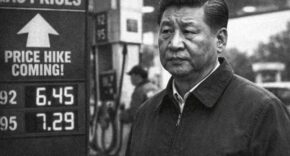People often turn to sports as a distraction from the grinds of life, using it as a kind of safe haven from the stresses of issues like health and finances that would otherwise occupy the mind and time. Of late, however, sports have been imitating life from all angles, including social, financial, and legal.
Professional golf has gone from being somewhat of a back-page sport on ESPN to currently being covered by all major media outlets, including the Wall Street Journal, CNBC, CNN, Fox News et al. You already know the answer to the question of why that is. Just follow the money, as usual.
In case you haven’t heard there is a new professional golf tour, LIV Golf, which is attempting to give the PGA Tour a run for its money. The key word here being money.
The breakaway tour is being fronted by two-time Open Championship winner Greg Norman and financed by Saudi Arabia’s Public Investment Fund. Yes, the same Saudi Arabia were fifteen of the nineteen 911 terrorist hijackers came from, as well as their ring leader, Osama Bin Laden. The U.S. concluded that Saudi nationals helped fund the terrorist group al-Qaida, although investigations didn’t find that Saudi officials were complicit in the attacks.
Saudi human rights abuses, including the murder of U.S.-based journalist Jamal Khashoggi in 2018 haven’t gone unnoticed. These facts haven’t resonated well with many Americans.
Once you get beyond the terrorist ties, the next thing that comes front and center is the amount of money being thrown at the neophyte tour. Saudi Arabia’s sovereign wealth fund has a bottomless pit of petrodollars to fuel the sport, and at the moment is its most powerful weapon. Sports are one part business and one part entertainment.
The financial aspect of the now fractured golf industry is lopsided in favor of LIV. The economic disparity is evidenced in the following chart comparing the U.S. Open on the PGA tour and the first LIV tour event prize money.

At some point, you have to wonder whether just throwing money at a business can assure its success. The short answer is no. There have been a plethora of businesses that have failed that have been adequately financed for dozens of various reasons. Entrepreneurs and business people will tell you that it comes down to strategy, with ideas being the most effective and affordable way to level the playing field.
The PGA tour has had sole possession of golf and its players, fueling the antitrust allegations currently confronting it and the sport. The stage has been set for an epic trust battle that could well effect the nature of sports in general. The Justice Department has opened an investigation into the PGA tour for just such antitrust violations, and if laws are in fact broken, it could reshape the landscape of professional sports.
The players can be viewed as independent contractors and when the PGA suspends them for leaving the tour and joining the LIV tour, players yell foul and may challenge the PGA independent of the Justice Department’s action. It won’t be easy though. The PGA has withstood challenges before, where it prevailed against the FTC for alleged violations in the 1990’s. According to Gabe Feldman, professor of sports law at Tulane University, “These cases are notoriously difficult to predict, because all antitrust cases are notoriously difficult to predict, and they’re even more difficult to predict in the sports context.”
The legal argument exuded by LIV is pretty black and white antitrust. They argue that the PGA Tour dominates the golf market to the point that it has a monopoly. LIV’s argument, among others, is that the PGA is using that power to try to exclude an upstart rival from competing against it, by trying to restrict or drive up the price of LIV’s access to players.
The PGA tour in return argues the fact that since top players like Phil Mickelson and Dustin Johnson have freely joined the new LIV tour, the PGA clearly doesn’t have the ability to exclude new competition. The coming months will tell as the Justice Department decides the possible fate.
Ultimately the success or failure, aside from litigation, will be answered by the marketplace. The complacency of golf, as in business, breeds competition, and capitalism goes to work in hopefully creating a product that is appealing and affordable to its niche. GM and Ford are going through this currently with the likes of Tesla threatening their very existence.
If electric does become the way of the future, the two auto giants will be better for the rivalry with the upstart car company. According to Greg Norman, “Our product has spoken for itself. Park aside all the white noise. It’s worked.” The fan base, as one could imagine, is decidedly split. There are those who root for the demise of LIV for the various reasons mentioned, and there are those who are enjoying a new twist on an ancient sport.
Early reviews of LIV are positive even among skeptics like the Fried Egg Golf Podcast, who recently tweeted, “We regret to inform you that LIV’s golf product does not stink.”
Epic rivalries in business from Apple v IBM to Burger King v McDonald’s, suggest that there could be room in the market for more than one big time golf tour. Ideas and talent represent a formidable combination, even when those ideas are not exactly original. It will be interesting to see how this all plays out.











